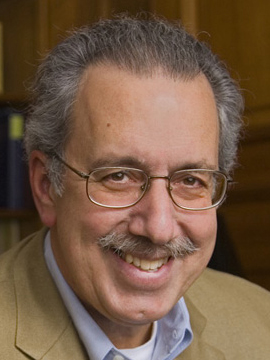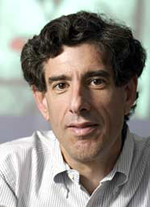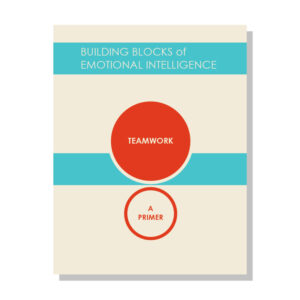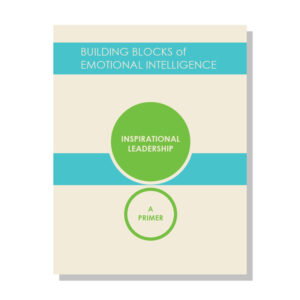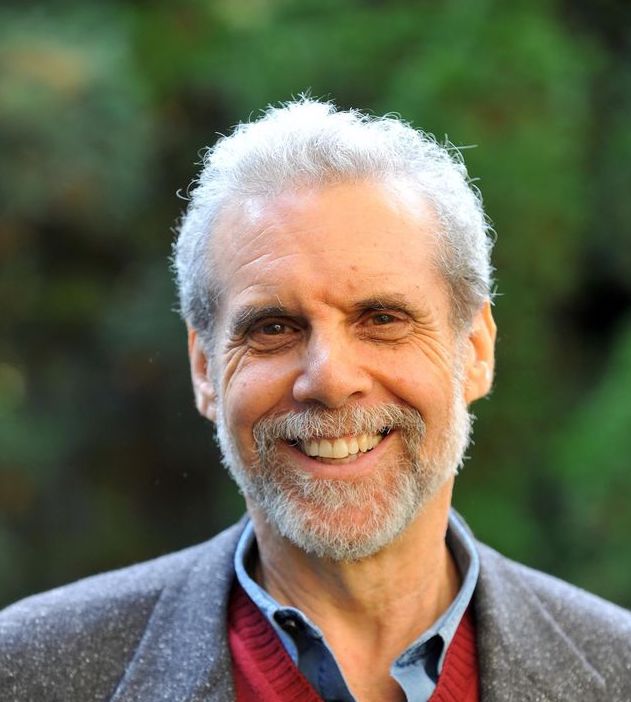
Daniel Goleman is an internationally known psychologist who lectures frequently to professional groups, business audiences, and on college campuses. As a science journalist Goleman reported on the brain and behavioral sciences for The New York Times for many years. He currently co-directs the Consortium for Research on Emotional Intelligence in Organizations at Rutgers. The Consortium “fosters research partnerships between academic scholars and practitioners on the role emotional intelligence plays in excellence.” Goleman’s most recent book, co-authored with Richard J. Davidson, is Altered Traits: Science Reveals How Meditation Changes Your Mind, Brain, and Body. He organized a series of intensive conversations between scientists and his longtime friend, the Dalai Lama, and published A Force for Good: The Dalai Lama’s Vision for Our World.
His book, Emotional Intelligence, created quite a stir in the business management community. Published in 1995, it held down a solid spot on The New York Times bestseller list for a year and a half. There are over five million copies circulating in forty language all over the world, making the best selling list in many other countries, as well. The Harvard Business Review called emotional intelligence”” which discounts IQ as the sole measure of one’s abilities ”” “a revolutionary, paradigm-shattering idea” and chose his article “What Makes a Leader” as one of ten “must-read” articles from its pages. Emotional Intelligence was named one of the 25 “Most Influential Business Management Books” by TIME Magazine.
He co-founded the Collaborative for Academic, Social and Emotional Learning at the Yale Child Studies Center, but has since moved to the University of Illinois at Chicago to work with the UIC Social and Emotional Learning Research Group, directed by Dr. Roger P. Weissberg. CASEL makes it their mission to bring evidence-based literature on the importance of emotional intelligence and emotional literacy to the education system. He is also a member of the Mind & Life Institute, which provides a space for researchers, contemplative practitioners, and scientists to collaborate and have a constructive dialogue.
Goleman’s awards and honors from his illustrious career are practically uncountable, but significant ones include the Financial Times, The Wall Street Journal, and The Accenture Institute for Strategic Change listing him among their most influential business leaders. His life’s work as a science journalist has earned him the Washburn Award for Science Journalism in 1997, a Lifetime Career Award from the American Psychological Association in 2008, and being made a Fellow of the American Association for the Advancement of Science for his dedication to communicating science to the general public.
Goleman graduated Amherst College magna cum laude (’68) with a scholarship from the Alfred P. Sloan foundation, and transferred to the University of California at Berkeley his junior year on the Amherst Independent Scholar program. He then received a scholarship from the Ford Foundation to attend Harvard University (’74) to acquire his doctorate. He was able to study in India with a pre-doctoral fellowship from Harvard and a post-doctoral grant from the Social Science Research Council. He spent time with spiritual teacher Sri Neem Karoli Baba Maharajji, who was also the mentor and guru to Ram Dass, Krishna Das, and Larry Brilliant. After traveling through India and Sri Lanka, Goleman lectured at Harvard, and his studies on the topic of psychology of the consciousness gained him some recognition before he moved on to working at Psychology Today and, later, the New York Times.
In addition to his numerous professional and academic achievements, Goleman stresses how important his private and personal life is to him on his personal website. He writes,
“While a bio like this focuses on one’s public life, I find that over the years my private life has grown increasingly important to me, particularly as the years allow me to spend less time running around and more time just being. I find more and more that what satisfies me has little to do with how well one or another book does””though the good works I participate in continue to matter much.”
At Key Step Media, Goleman is one of our most prolific authors. His most recent book, co-authored with neuroscientist Richard J. Davidson, is Altered Traits: Science Reveals How Meditation Changes Your Mind, Brain, and Body. In Altered Traits, Goleman and Davidson review the top scientific literature on how meditation impacts not just our mental states, but also lasting personality traits. Key Step Media’s audio version is read by Daniel Goleman.
â—Š
Our release, Crucial Competence: Building Social and Emotional Leadership, features Goleman speaking at length with collaborators Richard Davidson, Richard Boyatzis, George Kohlrieser, and Vanessa Druskat about how twelve emotional competencies foster the development individual and organizational leadership skills.
â—Š
Goleman’s book, A Force for Good: The Dalai Lama’s Vision for Our World, draws on his friendship with the Dalai Lama. He relays conversations they’ve had about His Holiness’s core values and the scientific data reinforcing these concepts. Goleman presents examples of companies whose work illustrates the Dalai Lama’s teachings, by developing businesses that benefit people and the environment. He also offers practical advice for applying these tenets to your everyday life including:
- Educate the heart by teaching ethics, conflict resolution, and compassionate values in schools.
- Help people help themselves by empowering the world’s most vulnerable.
- Rethink economics and make business meaningful, not just profitable.
- Heal the Earth through a more precise analysis of how to lessen our impacts.
- Be compassionate with others and yourself.
- Be tough in applying transparency and accountability in the service of fairness.
- Act now to help those in need in whatever ways you can.
â—Š
In addition to A Force for Good, we published The Executive Edge: An Insider’s Guide to Outstanding Leadership. This 294-page book features Goleman’s in-depth conversations with respected leaders in executive management, organizational research, workplace psychology, negotiation, and senior hiring. The Executive Edge examines the best practices of top-performing executives. It offers practical guidance for developing the distinguishing competencies that make a leader outstanding.
Every leader needs threshold abilities to get by at work. But in today’s complex business landscape, getting by isn’t enough. It’s the distinguishing competencies that are crucial for success. You need elements that will give you “the executive edge.”
Interviewees include Bill George, Warren Bennis, Teresa Amabile, Claudio Fernández-Aráoz, Howard Gardner, George Kohlrieser, Daniel J. Siegel, Erica Ariel Fox, and Peter Senge.
â—Š
Goleman is also the lead instructor for his Leadership: A Master Class (Training Guide available here). The Master Class is an eight-part video collection with more than eight hours of research findings, case studies and valuable industry expertise through in-depth interviews with respected leaders in executive management, organizational research, workplace psychology, negotiation and senior hiring.
“Leadership: A Master Class allows individuals and organizations alike access to top-level training on developing emotionally intelligent management skills from world-class experts,” says Goleman. “Executives, HR directors and leadership coaches now have at their fingertips a comprehensive, easy-to-use library of proven-effective techniques from these masters in their respective fields.”
The Master Class includes the segments (all of which can be purchased individually from the class):
- High Performance Leadership with George Kohlrieser
- The Socially Intelligent Leader with Warren Bennis
- Authentic Leadership with Bill George
- Today’s Leadership Imperative with Howard Gardner
- The Leader’s Mind with Daniel J. Siegel
- Talent Strategy with Claudio Fernández-Aráoz
- Create to Innovate with Teresa Amabile
- Getting Beyond the Yes with Erica Ariel Fox
The video collection also includes a bonus interview with Peter Senge, Senior Lecturer in Leadership and Sustainability at the MIT Sloan School of Management.


